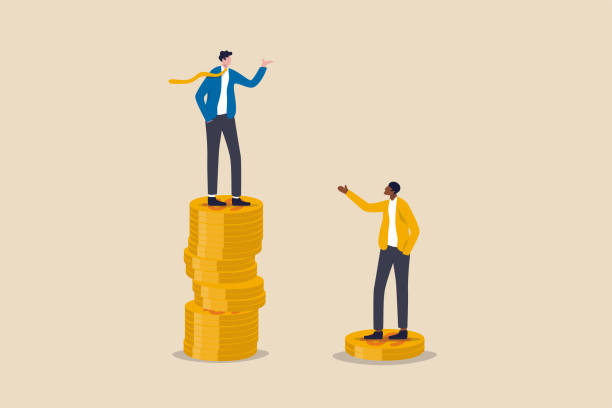Friday, April 25, 2025
Blog #12: Final Post
Blog #11: EOTO Recation
Blog #10: Age of AI
Artificial intelligence most commonly referred to as AI is a powerful tool with many benefits, but it also brings up many concerns. After watching the video, it became clear to me how much AI is starting to mimic human behavior, which made me and I couldn’t help but think about how reliant people are on AI recently. While it does make life easier, AI is commonly known to spread false or misleading information, especially if people don’t question what they’re being told and blindly follow what it says.



However tracing back to the issues, one major concern is privacy. AI systems often collect user data and many worry about how their personal information is being used or shared. These concerns show the importance of ethical guidelines and transparency in AI development.
Overall, AI can be incredibly helpful when used responsibly and in moderation, just like most things in life. It’s important to understand both the advantages and the risks and as AI continues to grow, we need to think critically about how it’s being used, who is actually benefiting in the long run, and how to protect people’s privacy and livelihoods. Awareness and thoughtfulness have both been common themes in our class when it comes to tech and they are key to making sure AI is a tool that supports society, not one that harms it.
Blog #9: EOTO 2 | Total Information Awareness
nalyze huge amounts of personal data from regular people like bank info, travel plans, and even medical records in order to find possible threats before anything bad happened. Even though the program was eventually shut down because people were upset about it, the idea of using data and technology for surveillance hasn’t gone away, which is highly unsettling.
At first glance, the program may sound like a good idea. If the government can use data to stop a terrorist attack or catch someone planning something dangerous then maybe it’s not so bad. Being able to find threats faster and possibly before they even occur could help protect people and save lives. Additionally the program might even make things run better and allow us to do things like responding to emergencies faster.
Although on the other hand when you look more into it, giving the government that much access to everyone’s personal information brings up a lot of problems and concerns. For starters, this means us as citizens lose a lot of our privacy. Imagine every time you send a text, buy something online, or go somewhere, it’s being tracked by the government. That’s kind of scary especially if you haven’t done anything wrong. There’s also the risk of mistakes and false accusations. Imagine if a computer system flags someone as a threat just because of a weird search or travel pattern? That person could end up getting questioned or even arrested for no real reason all because of an innocent search.
Another big issue is how people might act if they know they’re always being watched. They might stop speaking up or sharing their opinions out of fear. This is bad for democracy because people should be able to express themselves without being scared of getting in trouble. Sianna College even did a study to prove this and found: “84% Say Americans being Afraid to Exercise Freedom of Speech is a Serious Problem”
If constant surveillance becomes normal in our society, we could end up living in a world where privacy doesn’t exist anymore. Additionally the surveillance would raise the issue that different groups of people would probably be affected in different ways. Rich people might have better ways to protect their privacy, like using expensive tech or hiring private lawyers. While on the other hand poorer people might get watched more closely or judged unfairly because of stereotypical assumptions. Also, people from minority communities, including racial minorities or LGBTQ+ people, might be targeted more often, especially if the system has biases which would most likely be the case in our society.
The older generation might not even realize how much they’re being watched, or they might think it’s okay if it helps keep them safe but younger people, like us, who are more aware of how tech works know this is a serious issue.
Our generation is probably going to deal with this invasion of privacy the most. We're growing up in a time where being tracked online is super common and we have never really known a time before constant online monitoring. With that being said, our generation also has the power to fight back and can push for better privacy laws, more ethical tech, and more transparency from those in charge. The future depends on what we do now. We have all the resources to understand what is going on, resources older generations didn't have.
Even though TIA itself isn’t active anymore, the idea behind it is still alive and not slowing down. We need to decide if we’re okay with our every move online being watched or do we want a world where we are free from the government's unfair power over us? I know I don’t want to have to live like this and will be more conscious of my technology use going forward.
Blog #8: Diffusion
One of the most impactful innovations in recent years has been the app TikTok. Originally Tiktok was launched as Musical.ly but the app rebranded in 2018 after it was bought by the Chinese company ByteDance for $1 billion. It kept some of its original features but was transformed into a more impactful and content driven platform.
BLOG #7: Anitwar
Tuesday, April 8, 2025
BLOG #6: EOTO Reaction | Carrier Pigeons
Although she was in my own group, I found Abby’s presentation on Carrier Pigeons to be the most fascinating, and in my defense, how could you not? To be completely honest, I didn’t think carrier pigeons were a real thing and always thought they were just a joke or myth. I never believed pigeons could actually deliver messages or had the intelligence to know what they were doing.
It’s not often that a presentation inspires me enough to dive deeper into a topic, but Abby’s presentation motivated me to learn more carrier pigeons as soon as class was over. What shocked me the most in her presentation was that some pigeons had actually saved lives and were even recognized by the government for their heroism. The idea that pigeons could be trained to deliver messages over long distances and know exactly where to go and return to is so beyond me.
BLOG #5: Tech Ted Talk Reflection

The only way we can get the change we need is if people understand what’s happening and decide to take action. While we wait for the government to implement laws, we need to do what we can to stay safe and become more educated. We need to be more careful about what we share online, reading privacy settings, and understand that our data could be collected at any time. The more we learn, the better we can protect ourselves and speak up for our rights online. I would encourage everyone to become more educated on this topic because it has completely changed my perspective on how I use the internet now.
Blog #12: Final Post
Technology is both a tool and a weapon. As Professor Smith said, cell phones are one of humanity’s greatest inventions. Personally, I see te...

-
As a young college student, I’ve noticed how much technology shapes the way we live. It can be helpful in many ways, but it also comes with ...
-
A topic that caught my attention during presentations today was Propaganda. This is a topic I know more about but being able to hear someone...
-
The theory of diffusion of innovations was developed by Everett Rogers in his book Diffusion of Innovations written in 1962. This theory exp...



















